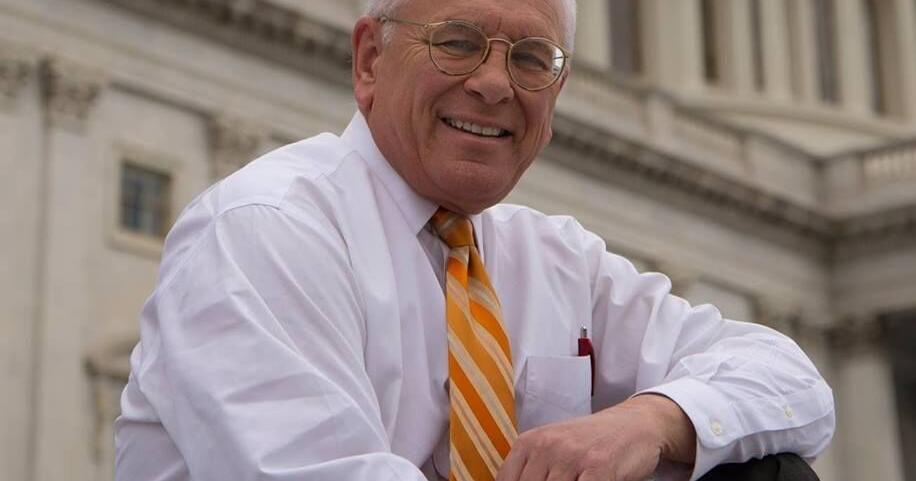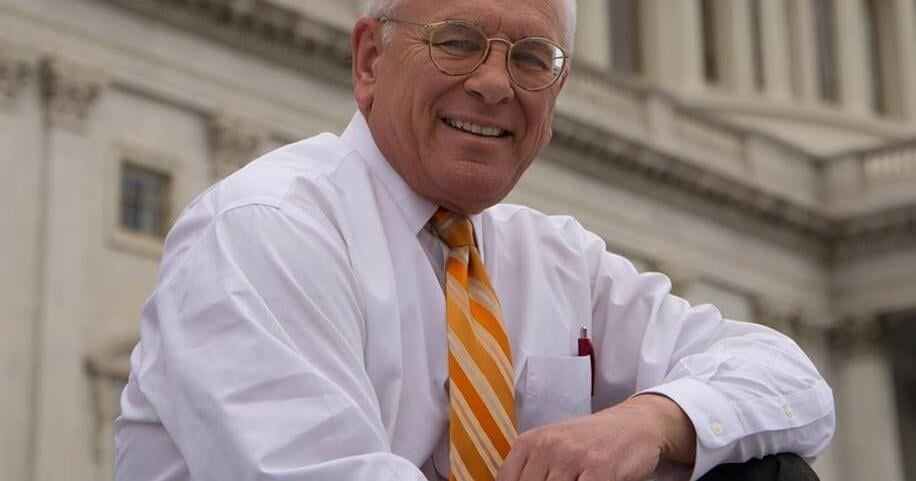U.S. Rep. Paul Tonko, D-Amsterdam, said legislation he introduced Feb. 9 to prohibit online and television advertising of sports gambling is intended as a long-term initiative that will take time to build support for.

The legislation — HR 967 — had no co-sponsors, as of Tuesday, and critics of the legislation argue that sports gambling advertising is protected as a First Amendment right.
The relevance of the legislation is clear, Tonko said, in a recent telephone interview about his legislative priorities.
“We’re very serious about this issue,” he said. “It’s operating in a mostly unregulated, Wild West environment.”
Sportsbook companies such as DraftKings and FanDuel advertise frequently during major sporting events, employing celebrity pitchmen to tout so-called “risk-free” and “no sweat” free bets, intended to get people hooked on gambling, Tonko said.
People are also reading…
He said the ads are “relentless,” offering bets not just on the outcome of the game but on every detail as it progresses, even the color of Gatorade the winning team will use to celebrate.
“It’s every moment, every step of the game,” he said.
Tonko said college students, young adults and those with addictive tendencies are particularly vulnerable to sports gambling advertising.
“We don’t need students leaving college with student loan debt and gambling debt,” he said.
Tonko emphasized that he is not looking to ban sports gambling, just the “predatory promotion” of it.
“I make it clear that I am not against legalized sports gambling,” he said. “It’s the advertising that we’re focused on.”
Supreme Court
Since a 2018 U.S. Supreme Court decision that overturned a federal ban on sports betting, 36 states have legalized it and 26 states have legalized mobile sports betting.
The National Council on Problem Gambling estimates that the risk of gambling addiction increased 30% between 2018 and 2021.
Tonko’s proposed legislation would not ban advertising for state lottery games.
Tonko said while state lottery and horse racing advertisements can be a catalyst to problem gambling, sports gambling advertising is more dangerous because bets can be placed instantly.
“Now you’ve got the phone in hand and can be betting incessantly,” he said.
To buy a lottery ticket or bet on horse racing, the individual must leave the residence and go to another location to gamble, providing time to talk themselves out of it, he explained.
Tonko said the proposed legislation is modeled after landmark legislation in 1969 that banned cigarette and tobacco advertising on television.
“These predatory promotions, I think, are creating a public health crisis,” he said.
The National Problem Gambling Helpline received 270,000 calls in 2021, a 45% increase from the previous year, according to a Tonko news release.
Opposition
Rep. Elise Stefanik, R-Schuylerville, contacted by The Post-Star, said she opposes the legislation, and she thinks the proposed ban would be unconstitutional.
“It is a complete non-starter and will go absolutely nowhere,” Stefanik said in a statement.
In a statement “adamantly” opposing the legislation, the American Gaming Association, an industry trade group, said the proposed ban would violate the constitutional right to free speech.
Chris Cylke, senior vice president, said members of the organization abide by a “responsible marketing code” which restricts the content of advertising messages, target audiences and advertising outlets.
“Responsibility is a foundation of the legal gaming industry and that includes with advertising. In fact, there’s never been more attention paid or resources invested in responsible gaming and problem gambling resources,” Cylke said in a statement. “Congress should instead focus its attention on combatting the predatory and pervasive offshore illegal market that offers no responsible gaming measures, age verification or problem gambling resources.”
The National Council on Problem Gambling has endorsed the legislation.
“As sports betting expands, the risk of gambling problems does as well,” the group said, in a statement.
Tonko said he will begin building support for the legislation soon, once he finishes up several energy-related bills he introduced.
Tonko said he will begin with members of the Addiction, Treatment and Recovery Caucus, a bipartisan group of more than 50 members of Congress of which Tonko is co-chairman.
Preventing overdoses
Another addiction-related bill he reintroduced March 30 is making progress after several years of advocacy, Tonko said.
The legislation would allow states to enroll soon-to-be-released incarcerated individuals in Medicaid 30 days prior to their release.
This would provide a transition in mental heath and addiction treatment as incarcerated individuals are released, rather than individuals being delayed in receiving services after their release due to an application and certification process.
Previously incarcerated individuals are most vulnerable to drug addiction immediately after release, Tonko said, citing a statistic that the rate of deaths due a drug overdose during the two weeks immediately following release is 129 times greater that that of the population in general.
“If we can save lives, let’s do so,” he said.
Tonko said the legislation does not change who is eligible for Medicaid, but merely makes that coverage available 30 days sooner.
The legislation — HR 2400 — had 13 original cosponsors – seven Republicans and six Democrats — from 10 states.
Sens. Tammi Baldwin, D-Wis. And Mike Braun, R-Ind., introduced Senate companion legislation.
Successful legislation
Tonko said he also is focusing on legislation he introduced in the previous session that President Biden signed into law in December.
The legislation, which was incorporated into a comprehensive budget bill, streamlined the process for authorizing medical providers to prescribe a drug to treat opioid addiction.
The legislation eliminated a requirement that medical providers apply for a separate, duplicative waiver from the federal Drug Enforcement Agency to be authorized to prescribe buprenorphine, a medication to treat opioid addiction.
The legislation is expected to increase the number of providers licensed to dispense the drug from 135,000 to 1.8 million.
“In order for us to reach that 1.8 million, we have to do a lot of outreach,” Tonko said.
Maury Thompson covered local government and politics for The Post-Star for 21 years before he retired in 2017. He continues to follow regional politics as a freelance writer.
